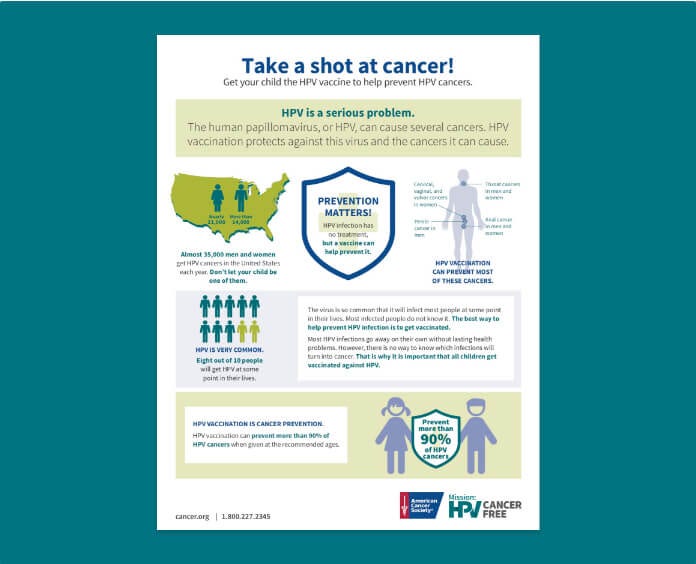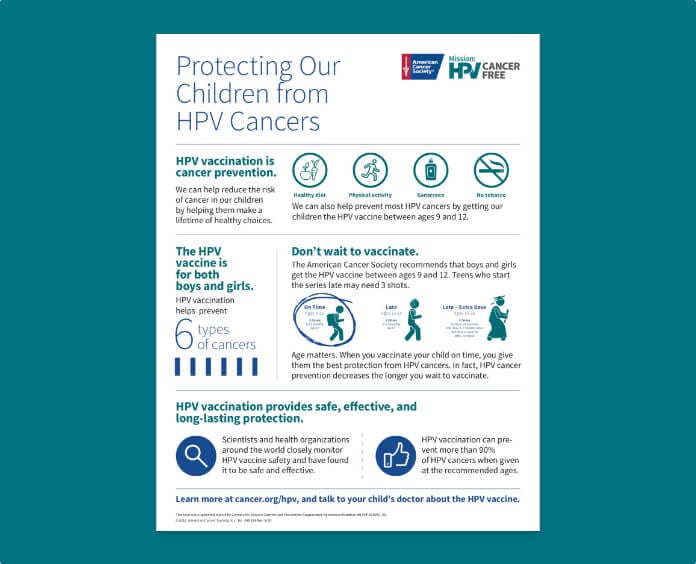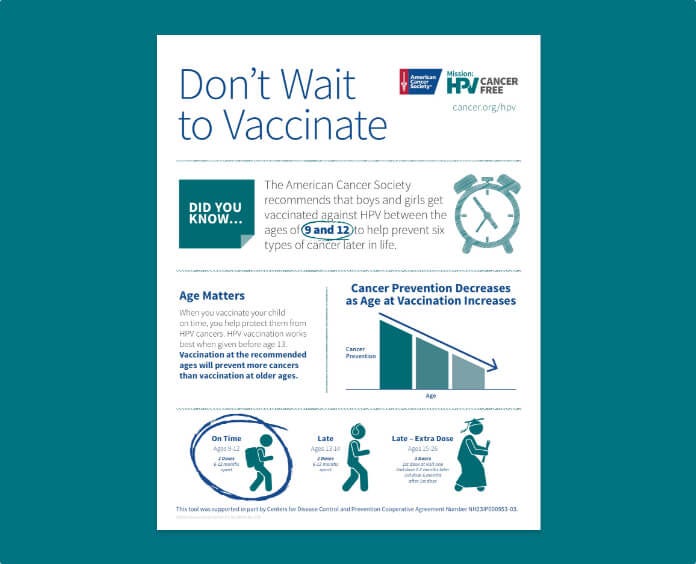Prevent 6 Cancers with the HPV Vaccine
HPV, or Human Papillomavirus, is a common virus that can cause 6 types of cancer. While there is no treatment for HPV, there is a vaccine that can prevent it.
If your son or daughter is between ages 9 and 12, talk to their doctor about the HPV vaccine. The vaccine is safe, effective, and long-lasting.
Vaccinating your child at the recommended ages can help keep them healthy well into adulthood and is the best way to prevent HPV cancers later in life.

3 steps to take now
1.) Use this site to learn the facts about the HPV vaccine and how it can help protect your child from 6 types of cancer later in life.
2) Call your child’s doctor to schedule an appointment or request the HPV vaccine at your child’s well visit.
3) If you have any questions about the HPV vaccine, write them down and take them to your child’s doctor visit.
KNOW THE FACTS
The American Cancer Society recommends that boys and girls get the HPV vaccine between the ages of 9 and 12. Teens and young adults through age 26 who are not already vaccinated should get the HPV vaccine as soon as possible. Teens who start the series late may need 3 shots instead of 2.
Know the Facts
The HPV vaccine can protect your child’s future because it helps prevent six types of cancer later in life.
- HPV is a common virus that can cause 6 types of cancer.
- Prevention Matters! HPV cannot be treated, but there is a vaccine that can prevent it.
- The HPV vaccine works best when given between ages 9 and 12, for boys and girls.
- The HPV vaccine is safe, effective, and long-lasting.

The truth about HPV
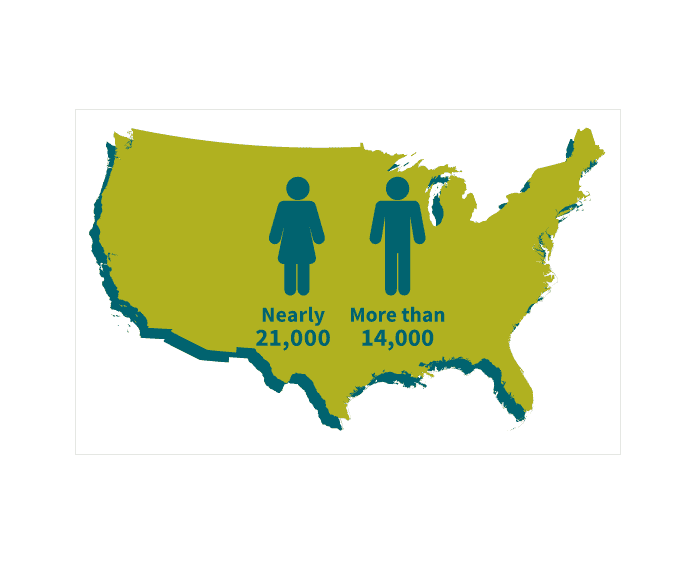
More than 37,000 people get HPV cancers in the United States every year.
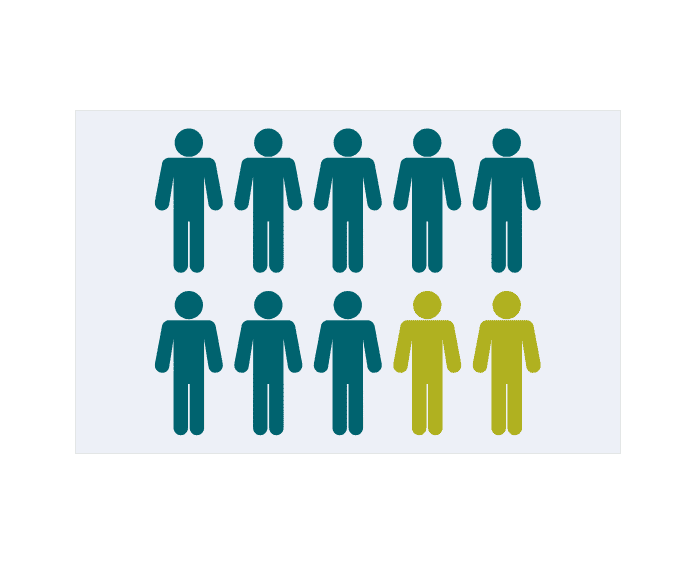
HPV is very common. Eight out of ten people will get HPV at some point in their lives.
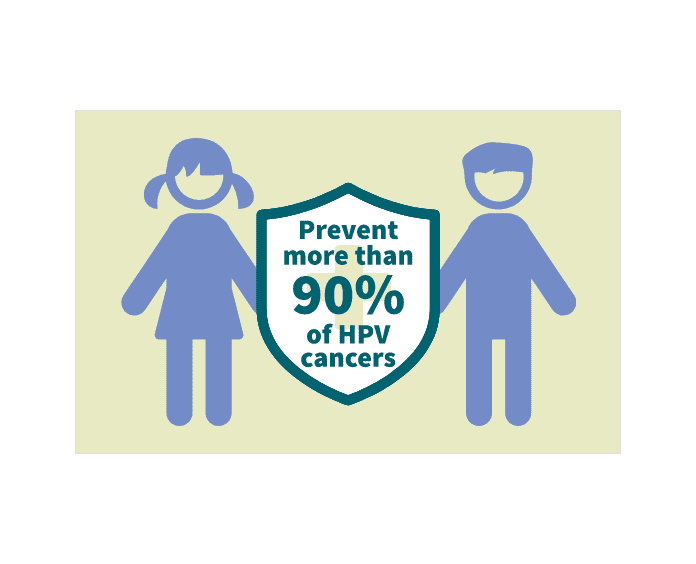
HPV vaccination can prevent more than 90% of HPV cancers when given at the recommended ages.
QUESTIONS? GET THE FACTS
Find more detailed information about the HPV vaccine and how it can help protect your kids.
Download these materials for more about the HPV vaccine and how it can help protect your kids.
ACS Cervical Cancer and HPV Vaccine Guidelines
Learn more about the American Cancer Society’s HPV vaccine use guidelines and commitment to eliminate cervical cancer.

The American Cancer Society's Mission: HPV Cancer Free is a public health initiative to eliminate vaccine preventable HPV cancers as a public health problem, starting with cervical cancer. Our goal is to reach an annual vaccination rate of 80% of 13-year-olds in the United States by 2026. To do this we are:
- Facilitating provider training and education.
- Engaging critical stakeholders and partners to drive vaccination rate improvement.
- Influencing stakeholders to use relevant data to drive planning and impact.
- Leading and supporting HPV vaccination interventions with health systems.
- Increasing parental knowledge about the vaccine through news, digital, and social media platforms and by mobilizing our ACS volunteer network and ACS CAN volunteers to share science-based information about the vaccine.





